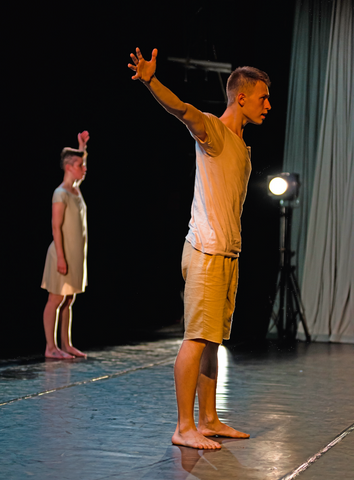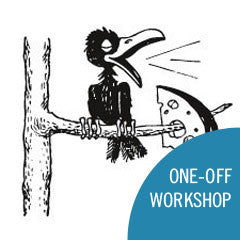
Planning to act
£14.95
Professional theatre actors mainly plan for performance by working in rehearsal with a director, a process that allows them to experiment to find the right character and performance. Later, as props, set and costume arrive and are incorporated into the production, the director typically steps back to allow the actors to practise running he play, in preparation for the arrival of an audience.
Student actors have to plan to act too, of course. But they will need to spend more time on vocal work to achieve projection and clear diction, as well as on their use of gesture and movement onstage. As a result, progress in interpretation may be patchy, as ideas, blocking and intentions need to be revisited. Students may also lack consistent input from a single director – a stretched teacher/director can only be in one place at a time. In addition, technical aspects of the production, such as props, set, sound, lights, costume, are less likely to fall smoothly into place in a student production. Each of these potential pitfalls can undermine students’ confidence and can inhibit them from doing something vitally important in theatre: taking risks.
What can you, as the teacher, do to help? Above all, you can try to ensure that your actors arrive at the first full rehearsal in a confident, informed state of mind. This means encouraging your student actors to do much of the essential ‘leg work’ in their own time. The pre-rehearsal stage is, I think, a sorely-overlooked aspect of the process of theatre production. Once you’ve cast the play why wait until the first read-through to let your actors loose on the text? Encourage students to follow the example of professional TV and film actors, who are expected to turn up for filming with their lines learned and their character firmly in place.
It is therefore important to allow your actors to take their first faltering steps in private. They should read, research and examine their given roles using a carefully thought-out structure which they can trust, and which
you can later view and assess. As long as each of your actors has a full copy of the playscript, adequate time, and a degree of commitment, they can make huge progress in preparing to play a character; in essence, they can plan to act.
Learning objectives:
The aim of this scheme is to help student actors to prepare for rehearsal by:
- Extracting and recording detailed character clues from a play script
- Presenting their given character to others both as a personal case study and as a live individual




